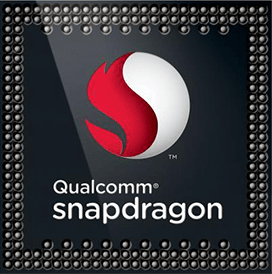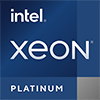
Qualcomm Snapdragon 865+ Benchmark, Test and specs
Last updated:
The Qualcomm Snapdragon 865+ has 8 CPU cores and can process 8 threads at the same time. The processor was presented in Q3/2020 and is based on the 7. Generation of the Qualcomm Snapdragon series. In the Geekbench 5 benchmark, the Qualcomm Snapdragon 865+ achieved a result of 985 points (single-core) or 3,275 points (multi-core).

| Name: | Qualcomm Snapdragon 865+ |
|---|---|
| Family: | Qualcomm Snapdragon (102) |
| CPU group: | Qualcomm Snapdragon 865/870 (3) |
| Architecture: | Kryo 585 |
| Segment: | Mobile |
| Generation: | 7 |
| Predecessor: | -- |
| Successor: | -- |
CPU Cores and Base Frequency
The Qualcomm Snapdragon 865+ has 8 cores. The clock frequency of the Qualcomm Snapdragon 865+ is 3.10 GHz. An initial performance assessment can be made using the number of CPU cores.
| CPU Cores / Threads: | 8 / 8 |
|---|---|
| Core architecture: | hybrid (Prime / big.LITTLE) |
| A-Core: | 1x Kryo 585 Prime |
| B-Core: | 3x Kryo 585 Gold |
| C-Core: | 4x Kryo 585 Silver |
| Hyperthreading / SMT: | No |
|---|---|
| Overclocking: | No |
| A-Core Frequency: | 3.10 GHz |
| B-Core Frequency: | 2.42 GHz |
| C-Core Frequency: | 1.80 GHz |
Artificial Intelligence and Machine Learning
Processors with the support of artificial intelligence (AI) and machine learning (ML) can process many calculations, especially audio, image and video processing, much faster than classic processors. Algorithms for ML improve their performance the more data they have collected via software. ML tasks can be processed up to 10,000 times faster than with a classic processor.
| AI hardware: | Qualcomm AI engine |
|---|---|
| AI specifications: | Hexagon 698 @ 15 TOPS |
Internal Graphics
The Qualcomm Snapdragon 865+ has an integrated graphics that the system can use to efficiently play back videos. The Qualcomm Snapdragon 865+ has the Qualcomm Adreno 650 installed, which has 2 streaming multiprocessors (512 shaders).
| GPU name: | Qualcomm Adreno 650 |
|---|---|
| GPU frequency: | 0.25 GHz |
| GPU (Turbo): | 0.67 GHz |
| Compute units: | 2 |
| Shader: | 512 |
| Hardware Raytracing: | No |
| Release date: | Q4/2019 |
| Max. displays: | 1 |
|---|---|
| Generation: | 6 |
| Direct X: | 12.0 |
| Technology: | 7 nm |
| Max. GPU Memory: | -- |
| Frame Generation: | No |
Hardware codec support
Processors with integrated graphics can process video codecs faster. Support for modern codecs can significantly increase system efficiency during video playback.
| h265 / HEVC (8 bit): | Decode / Encode |
|---|---|
| h265 / HEVC (10 bit): | Decode / Encode |
| h264: | Decode / Encode |
| VP8: | Decode / Encode |
| VP9: | Decode / Encode |
| AV1: | No |
|---|---|
| AVC: | Decode |
| VC-1: | Decode |
| JPEG: | Decode / Encode |
Memory & PCIeThe Qualcomm Snapdragon 865+ supports a maximum of 16 GB memory. Depending on the mainboard, the processor can use a maximum of 4 (Quad Channel) memory channels. This results in a maximum bandwidth of the main memory of 44.0 GB/s. |
|
| Memory type: | Memory bandwidth: |
|---|---|
| LPDDR5-5500 LPDDR4X-4266 | 44.0 GB/s 34.1 GB/s |
| Max. Memory: | 16 GB |
| Memory channels: | 4 (Quad Channel) |
| ECC: | No |
| PCIe: | |
| PCIe Bandwidth: | -- |
Thermal ManagementThe Qualcomm Snapdragon 865+ has a TDP of 10 W. Based on the TDP, the system manufacturer can and must adapt the cooling solution to the processor. |
|
|---|---|
| TDP (PL1 / PBP): | 10 W |
| TDP (PL2): | -- |
| TDP up: | -- |
| TDP down: | -- |
| Tjunction max.: | -- |
Technical details
Modern production reduces the waste heat of a processor and increases its efficiency. The Qualcomm Snapdragon 865+ is made in 7 nm and has 5.00 MB cache.
| Technology: | 7 nm |
|---|---|
| Chip design: | Chiplet |
| Socket: | -- |
| L2-Cache: | 2.00 MB |
| L3-Cache: | 3.00 MB |
| AES-NI: | No |
| Operating systems: | Android |
| Virtualization: | None |
|---|---|
| Instruction set (ISA): | Armv8-A (64 bit) |
| ISA extensions: | -- |
| Release date: | Q3/2020 |
| Release price: | -- |
| Part Number: | SM8250-AB |
| Documents: | Technical data sheet |
Rate this processor
Benchmark results

The benchmark results for the Qualcomm Snapdragon 865+ have been carefully checked by us. We only publish benchmark results that have been created by us or that have been submitted by a visitor and then checked by a team member. All results are based on and fullfill our benchmark guidelines.
Screenshots:
Screenshots:
Geekbench 5, 64bit (Single-Core)
Geekbench 5 is a cross plattform benchmark that heavily uses the systems memory. A fast memory will push the result a lot. The single-core test only uses one CPU core, the amount of cores or hyperthreading ability doesn't count.

|
AMD Ryzen Threadripper 1900X
8C 16T @ 4.00 GHz |
||

|
Intel Core i5-5675C
4C 4T @ 3.60 GHz |
||

|
Intel Xeon Silver 4215
8C 16T @ 3.50 GHz |
||
|
|
Qualcomm Snapdragon 865+
8C 8T @ 3.10 GHz |
||

|
Intel Core i7-5930K
6C 12T @ 3.70 GHz |
||

|
Intel Pentium Gold G5600F
2C 4T @ 3.90 GHz |
||

|
Intel Pentium Gold G5600
2C 4T @ 3.90 GHz |
||
Geekbench 5, 64bit (Multi-Core)
Geekbench 5 is a cross plattform benchmark that heavily uses the systems memory. A fast memory will push the result a lot. The multi-core test involves all CPU cores and taks a big advantage of hyperthreading.

|
Intel Core i7-3820
4C 8T @ 3.60 GHz |
||

|
Intel Core i3-10100TE
4C 8T @ 2.30 GHz |
||

|
Intel Core i7-8565U
4C 8T @ 2.40 GHz |
||
|
|
Qualcomm Snapdragon 865+
8C 8T @ 3.10 GHz |
||

|
AMD Ryzen 5 4600GE
6C 12T @ 3.80 GHz |
||

|
Intel Core i7-3920XM
4C 8T @ 2.90 GHz |
||

|
Intel Xeon E3-1220 v6
4C 4T @ 3.30 GHz |
||
Geekbench 6 (Single-Core)
Geekbench 6 is a benchmark for modern computers, notebooks and smartphones. What is new is an optimized utilization of newer CPU architectures, e.g. based on the big.LITTLE concept and combining CPU cores of different sizes. The single-core benchmark only evaluates the performance of the fastest CPU core, the number of CPU cores in a processor is irrelevant here.

|
Qualcomm Snapdragon 888+
8C 8T @ 3.00 GHz |
||

|
AMD Ryzen 7 PRO 4750G
8C 16T @ 4.40 GHz |
||

|
Intel Xeon Platinum 8168
24C 48T @ 3.70 GHz |
||
|
|
Qualcomm Snapdragon 865+
8C 8T @ 3.10 GHz |
||

|
Intel Core i3-6300
2C 4T @ 3.80 GHz |
||

|
Intel Xeon E3-1240 v3
4C 8T @ 3.80 GHz |
||

|
AMD EPYC 7532
32C 64T @ 3.30 GHz |
||
Geekbench 6 (Multi-Core)
Geekbench 6 is a benchmark for modern computers, notebooks and smartphones. What is new is an optimized utilization of newer CPU architectures, e.g. based on the big.LITTLE concept and combining CPU cores of different sizes. The multi-core benchmark evaluates the performance of all of the processor's CPU cores. Virtual thread improvements such as AMD SMT or Intel's Hyper-Threading have a positive impact on the benchmark result.

|
AMD Ryzen 3 4300U
4C 4T @ 3.70 GHz |
||

|
Intel Core i5-6440EQ
4C 4T @ 3.00 GHz |
||

|
MediaTek Dimensity 1300
8C 8T @ 3.00 GHz |
||
|
|
Qualcomm Snapdragon 865+
8C 8T @ 3.10 GHz |
||

|
Intel Processor N100
4C 4T @ 3.00 GHz |
||

|
MediaTek Dimensity 1100
8C 8T @ 2.60 GHz |
||

|
AMD Ryzen 5 3550H
4C 8T @ 3.00 GHz |
||
iGPU - FP32 Performance (Single-precision GFLOPS)
The theoretical computing performance of the internal graphics unit of the processor with simple accuracy (32 bit) in GFLOPS. GFLOPS indicates how many billion floating point operations the iGPU can perform per second.

|
AMD Ryzen 7 4700U
AMD Radeon RX Vega 7 (Renoir) @ 1.60 GHz |
||

|
AMD Ryzen 7 4800H
AMD Radeon RX Vega 7 (Renoir) @ 1.60 GHz |
||

|
Samsung Exynos 2200
Samsung Xclipse 920 @ 1.30 GHz |
||
|
|
Qualcomm Snapdragon 865+
Qualcomm Adreno 650 @ 0.67 GHz |
||

|
Qualcomm Snapdragon 870
Qualcomm Adreno 650 @ 0.67 GHz |
||

|
Intel Core i5-1140G7
Intel Iris Xe Graphics 80 (Tiger Lake) @ 1.10 GHz |
||

|
Intel Core i5-1130G7
Intel Iris Xe Graphics 80 (Tiger Lake) @ 1.10 GHz |
||
AnTuTu 9 Benchmark
The AnTuTu 9 benchmark is very well suited to measuring the performance of a smartphone. AnTuTu 9 is quite heavy on 3D graphics and can now also use the "Metal" graphics interface. In AnTuTu, memory and UX (user experience) are also tested by simulating browser and app usage. AnTuTu version 9 can compare any ARM CPU running on Android or iOS. Devices may not be directly comparable when benchmarked on different operating systems.
In the AnTuTu 9 benchmark, the single-core performance of a processor is only slightly weighted. The rating is made up of the multi-core performance of the processor, the speed of the working memory, and the performance of the internal graphics.
In the AnTuTu 9 benchmark, the single-core performance of a processor is only slightly weighted. The rating is made up of the multi-core performance of the processor, the speed of the working memory, and the performance of the internal graphics.

|
Apple A14 Bionic
6C 6T @ 3.00 GHz |
||

|
Qualcomm Snapdragon 870
8C 8T @ 3.20 GHz |
||

|
Samsung Exynos 2100
8C 8T @ 2.90 GHz |
||
|
|
Qualcomm Snapdragon 865+
8C 8T @ 3.10 GHz |
||

|
Google Tensor
8C 8T @ 2.80 GHz |
||

|
MediaTek Dimensity 1300
8C 8T @ 3.00 GHz |
||

|
MediaTek Dimensity 1200
8C 8T @ 3.00 GHz |
||
AnTuTu 8 Benchmark
The AnTuTu 8 Benchmark measures the performance of a SoC. AnTuTu benchmarks the CPU, GPU, Memory as well as the UX (User Experience) by simulating browser and app usage. AnTuTu can benchmark any ARM CPU that runs under Android or iOS. Devices may not be directly compareable if the benchmark has been performed under different operating systems.
In the AnTuTu 8 benchmark, the single-core performance of a processor is only slightly weighted. The evaluation consists of the multi-core performance of the processor, the speed of the RAM and the performance of the internal graphics.
In the AnTuTu 8 benchmark, the single-core performance of a processor is only slightly weighted. The evaluation consists of the multi-core performance of the processor, the speed of the RAM and the performance of the internal graphics.
|
|
HiSilicon Kirin 9000E
8C 8T @ 3.13 GHz |
||

|
Apple A14 Bionic
6C 6T @ 3.00 GHz |
||

|
MediaTek Dimensity 1200
8C 8T @ 3.00 GHz |
||
|
|
Qualcomm Snapdragon 865+
8C 8T @ 3.10 GHz |
||

|
Google Tensor
8C 8T @ 2.80 GHz |
||

|
Samsung Exynos 2100
8C 8T @ 2.90 GHz |
||

|
Qualcomm Snapdragon 865
8C 8T @ 2.84 GHz |
||
Performance for Artificial Intelligence (AI) and Machine Learning (ML)
Processors with the support of artificial intelligence (AI) and machine learning (ML) can process many calculations, especially audio, image and video processing, much faster than classic processors. The performance is given in the number (trillions) of arithmetic operations per second (TOPS).

|
Apple A15 Bionic (4-GPU)
6C 6T @ 3.23 GHz |
||

|
Apple A15 Bionic (5-GPU)
6C 6T @ 3.23 GHz |
||

|
Apple M2
8C 8T @ 0.66 GHz |
||
|
|
Qualcomm Snapdragon 865+
8C 8T @ 3.10 GHz |
||

|
Qualcomm Snapdragon 870
8C 8T @ 3.20 GHz |
||

|
Samsung Exynos 990
8C 8T @ 2.73 GHz |
||

|
Qualcomm Snapdragon 865
8C 8T @ 2.84 GHz |
||
Benchmarks

Geekbench 5 (SC)
2,488 entries
2,488 entries

Geekbench 5 (MC)
2,461 entries
2,461 entries

Geekbench 6 (SC)
1,755 entries
1,755 entries

Geekbench 6 (MC)
1,703 entries
1,703 entries

FP32 SP (iGPU)
2,039 entries
2,039 entries

AnTuTu 9 Benchmark
90 entries
90 entries

AnTuTu 8 Benchmark
118 entries
118 entries

AI / ML Performance
116 entries
116 entries
Popular comparisons
back to index





